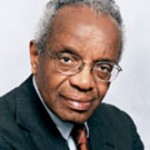Falling Leaves and Rising Stress Levels?
 The leaves are changing, the nights are cool, and there’s a nip in the air in the early mornings. That means it’s October, which means for most law students that school has been in session for nearly two months (for most students). It’s around this time that the 1Ls perhaps notice an increase in workload. Now there’s not just reading and briefing for class – which may be clipping along more quickly now – but probably assignments due in their writing classes. All along, in the background, 1Ls are hearing people talk about “getting those outlines started.” Second years have hustled through the on-campus interview process, which seems more selective than ever, and some are working their way through call-backs. Others are frustrated that they aren’t getting any call-backs. And likely most 3Ls are themselves working on getting jobs, knowing with that as each day passes, they are one step closer to graduation and one step closer to having to pay back those loans.
The leaves are changing, the nights are cool, and there’s a nip in the air in the early mornings. That means it’s October, which means for most law students that school has been in session for nearly two months (for most students). It’s around this time that the 1Ls perhaps notice an increase in workload. Now there’s not just reading and briefing for class – which may be clipping along more quickly now – but probably assignments due in their writing classes. All along, in the background, 1Ls are hearing people talk about “getting those outlines started.” Second years have hustled through the on-campus interview process, which seems more selective than ever, and some are working their way through call-backs. Others are frustrated that they aren’t getting any call-backs. And likely most 3Ls are themselves working on getting jobs, knowing with that as each day passes, they are one step closer to graduation and one step closer to having to pay back those loans.
Perhaps here is where the stress starts to kick in.
Not all stress is bad; stress often gives us the kick in the pants we need to get things done, and we can return to “normal.” But for law students, the stress can seem to be ongoing, weighing them down for weeks or maybe months. Is there any way for law students to avoid this stress?

